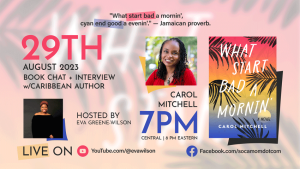In the AP article “US Rum Subsidies Hammer Caribbean Producers,” David McFadden writes, “Rum, the sugar-based liquor that has fueled the development of the Caribbean for centuries, has become the focus of an increasingly bitter dispute with the U.S.” Here are excerpts: Small producers in countries such as Antigua, Guyana and Jamaica complain they are being punched by unfair trade and marketing advantages for global beverage corporations operating in U.S. territories, and say U.S. rum subsidies threaten to drive some beloved top-shelf Caribbean labels out of business, or force them to sell out. “The amounts that are being doled out now are staggering,” said Frank Ward, chairman of the West Indies Rum & Spirits Producers’ Association. “We were able to live with the level of U.S. subsidies as they once were. But the massive increases, we believe, have skewed the market.”
It’s a high stakes battle because rum, first developed on Caribbean sugar plantations in the 17th century and deeply engrained in local culture and history, is one of the few competitive industries for the tourism-dependent region’s tiny, vulnerable economies. The tipple, which can range from colorless to coppery, from almost tasteless to richly layered, generates roughly $500 million in foreign exchange for independent Caribbean countries and more than $250 million in tax revenue. The subsidies come from money raised through an excise tax on liquor sold in the United States.
Under an obscure federal law, almost all of the money generated by rum goes to the treasuries of Puerto Rico and the U.S. Virgin Islands. Those tropical territories in turn hand a share of it to the producers as a subsidy to do business there. Distillers in other countries say they lived fairly comfortably with the U.S. subsidies for decades, even if they thought the rebates gave advantages to rum giant Bacardi Limited in Puerto Rico and Cruzan Rum, a U.S. Virgin Islands brand now owned by Beam Inc., the U.S. maker of spirits such as Jim Beam and Maker’s Mark.
But they are alarmed by recent deals that sharply increased the subsidies for already powerful corporations in the two territories. In the Virgin Islands, London-based Diageo PLC signed a long-term lease in 2009 to build a rum distillery on St. Croix making the Captain Morgan brand in exchange for a chunk of the excise-tax revenue estimated at $2.7 billion over 30 years.
It will start full production next fiscal year. Diageo also gets government marketing support and generous subsidies for molasses, the syrupy byproduct of sugar refining that is a key ingredient in most rum. Puerto Rico, in response, has increased the amount it spends to promote its rum industry, from 10 percent to 25 percent of the excise tax money it gets back. It has also awarded Bacardi a $95 million grant to renovate its production plant in exchange for maintaining a minimum level of production for the next 20 years.
That translates into more than $230 million in yearly revenue from excise taxes. The moves have prompted some competing Caribbean distillers to urge their governments to complain to the World Trade Organization, fearing that the U.S. subsidies may undermine age-old rum operations in the Caribbean, the global center of production, and motivate other multinational distillers to relocate to U.S. territories.
“Our Caribbean distilleries need to export rum in order to survive. But bigger subsidies in the U.S. islands means we don’t get a level playing field for our exports, and it’s going to affect both small and large producers here,” said Anthony Bento, managing director of the 80-year-old Antigua company that makes English Harbour Rum in copper stills and ages it in oak barrels. Clifton Shillingford of Shillingford Estates Ltd, a small Dominica distiller that makes its Macourcherie rums from local sugar cane juice instead of molasses, said the subsidies for big global brands in the U.S. islands will “destroy” his rum business.
So far, no Caribbean governments have declared their intentions to challenge the United States, the region’s biggest trading partner, with a WTO complaint. The Caribbean Community, which groups 15 Caribbean nations and dependencies, said it is trying to achieve a “negotiated settlement” with Washington.
For full article, see http://m.apnews.com/ap/db_268779/contentdetail.htm?contentguid=fym0q7sL
Read more http://repeatingislands.com/2012/09/13/u-s-rum-subsidies-hammer-caribbean-producers/



